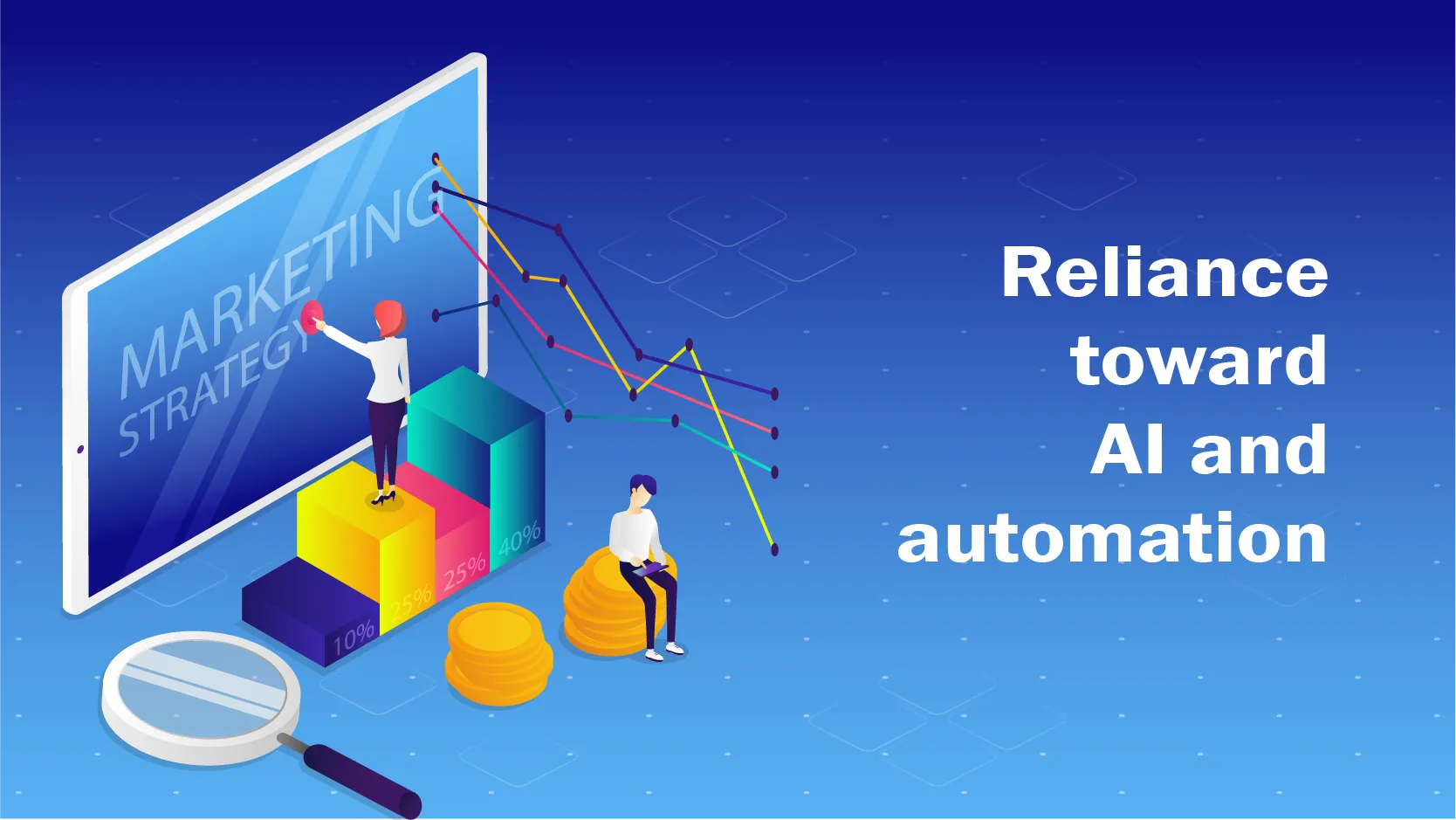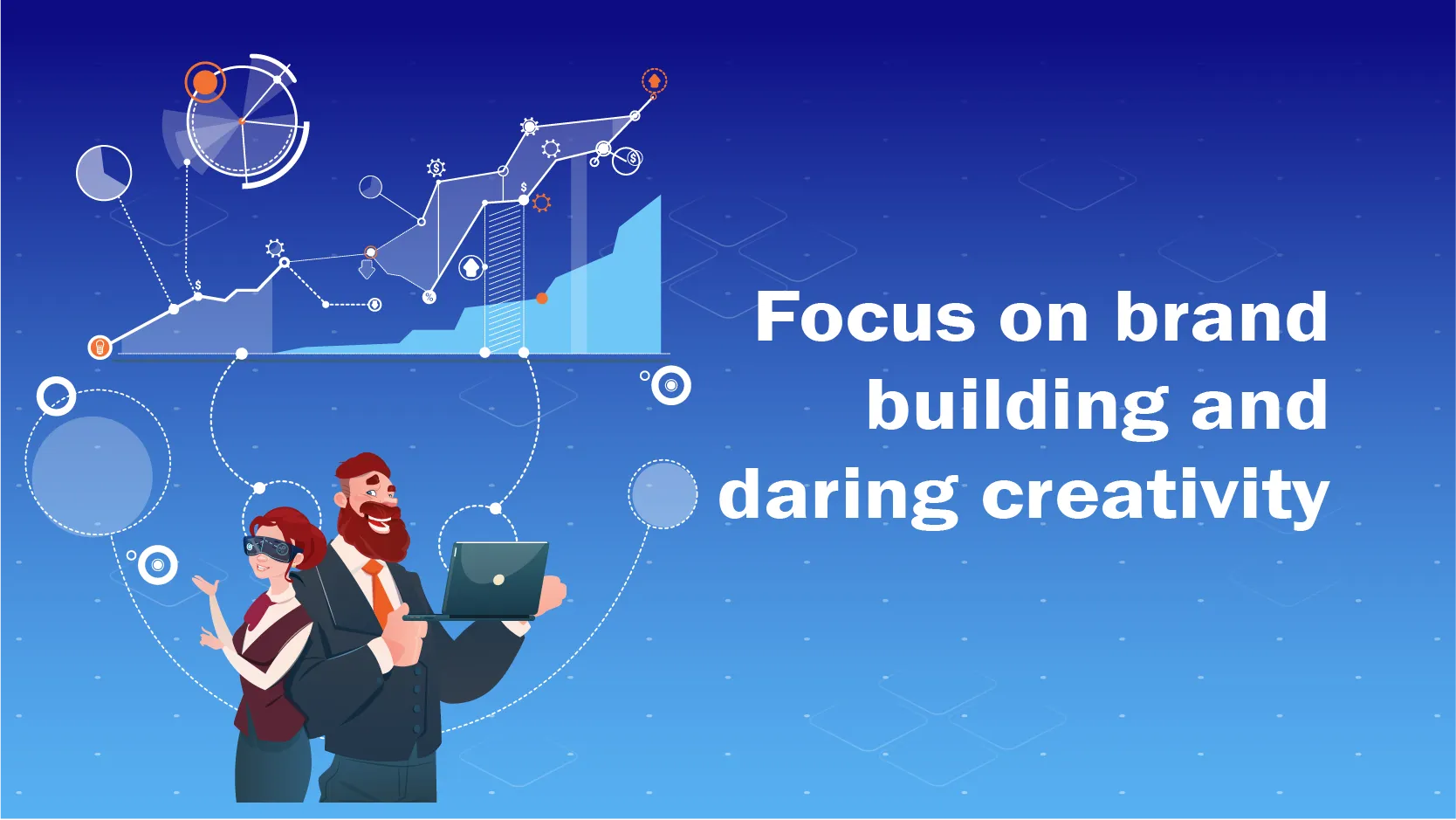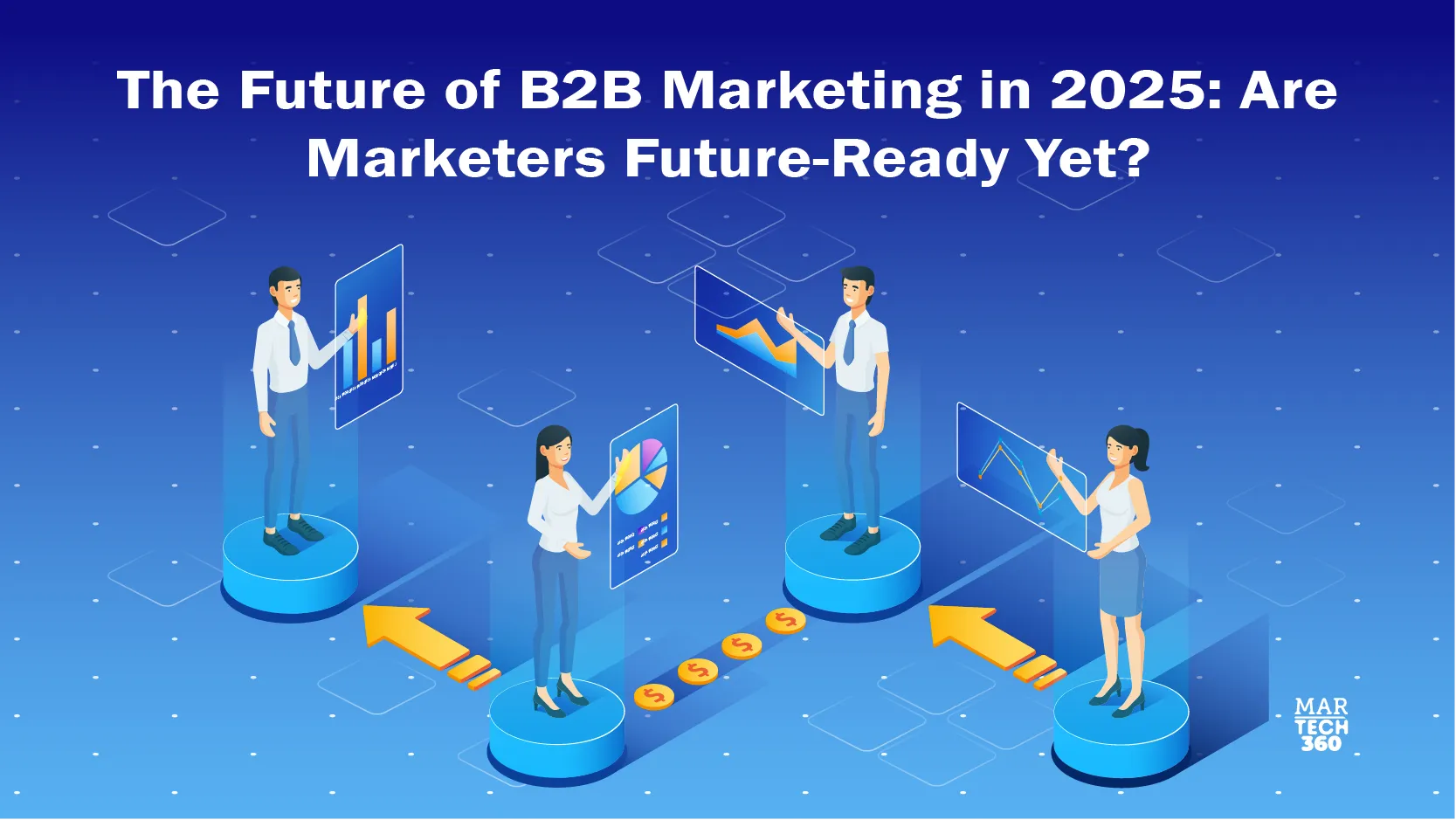Today’s B2B marketing leaders are grappling with unprecedented challenges. While the function remains resilient, leaders must innovate relentlessly to drive impact and growth.
With debates surrounding ChatGPT vs traditional SEO and Google’s shifting stance on third-party cookies, the B2B sector is in constant flux. Understanding and anticipating these changes is crucial for staying ahead in B2B marketing.
This blog explains exactly how the future of B2B marketing will affect business leaders and what you can do about it.
Reliance toward AI and automation

Artificial intelligence (AI) and automation are growing in marketing processes. AI technologies, such as machine learning (ML), natural language processing (NLP), large language models (LLM), and deep learning, are transforming how companies manage and interact with their data.
This allows businesses to interact with their data using plain English rather than requiring specialized knowledge in programming or database languages like SQL.
Marketers can now query complex data sets and obtain insights in real-time through simple, conversational interfaces, making data more accessible and actionable.
Personalization based on data
Data-driven personalization for improving customer experience will become a powerful strategy that transcends traditional approaches.
77% of business leaders recognize that personalized support boosts customer retention. Even customers (56%) prefer buying from companies that offer personalized experiences.
Companies often fall short of providing customers with what they want. However, this won’t be an issue in the future as AI tools offering such services are becoming mainstream.
Marketers can use data analytics, automation tools, AI, etc. to understand valuable insight from robust data sets. This allows the identification of trends or patterns that need to be addressed.
Going forward, B2B leaders need to adopt a fresh marketing mindset. By considering each client as a distinct individual rather than just another customer, they can create a personalized experience for each client.
Though this means burning some significant cash, the rewards are quite substantial.
Also Read: B2B Intent Data: Definition, Types, and Collection Strategies
Traceable in marketing
Traceability is becoming increasingly crucial, with B2B companies needing to provide clear evidence of their marketing efforts’ impact. To understand this, see what Benoit Soucaret, Chief Experience Officer at Merkle EMEA, has to say:
“By 2030, we are predicting that knowing a product’s backstory, if you will, will become super important for businesses buying from other businesses. Right now, the price tag is what everyone looks at, but we really think that soon it’s going to be all about traceability. This means businesses will want to know
- Where the product was made
- If the area it’s made in is stable
- If the workers are being paid fairly
- If the way it’s made is good for the environment
And lastly, if the whole process that they’re going through is on the up and up, ethically speaking. Businesses are going to have to care so much more about this stuff that they’ll pay extra for it, we really think that.”
This shift involves using technology to track and measure marketing activities across various channels, ensuring transparency and accountability.
Marketers are expected to demonstrate the ROI of their campaigns and justify their strategies with data-driven insights.
Videos will be everywhere
B2B marketing is gradually moving toward video marketing. You can search for any keyword, and there will be at least one video popping up on Google.
Take this topic, for example: The future of B2B marketing
Additionally, videos improve sales and lead to better customer retention.
According to 87% of marketers, videos have a direct impact on sales. Also, about 89% of buyers want more videos from brands.
So make sure to add videos to your marketing bucket list.
Voice-activated search
The rise of voice-activated devices, such as smart speakers and digital assistants, is reshaping how customers search for information.
Voice search optimization involves refining your online presence, including your website and content, to ensure they are easily accessible through voice searches. This adjustment is crucial as voice searches are becoming a primary way users interact with digital platforms.
A key difference between voice search and traditional search is its conversational tone. Users no longer rely on simple keywords but instead ask full, context-rich questions, which changes the dynamics of search engine optimization.
Many users rely on voice search to find local businesses, products, or services. By implementing local SEO strategies, such as updating your Google My Business listing and maintaining accurate location details across platforms, you can significantly enhance your visibility in voice search results.
The technical performance of your website is also critical for voice search optimization. Factors like speed, mobile friendliness, and structured data are essential for ranking well in voice search. Prioritizing these elements can substantially increase your chances of appearing higher in voice search rankings.
Buyers’ continuous preference for self-service
The trend towards self-service buying in the B2B landscape is rapidly gaining momentum, as more decision-makers prefer to make purchases without the need for direct interaction with sales teams.
75% of B2B buyers now favor online purchasing with minimal sales involvement. In 2025, B2B marketers should increasingly prioritize content and tools designed to empower buyers to make informed decisions independently.
Companies will continue to adopt transparent pricing models and offer personalized product demos that allow potential buyers to explore offerings without the need for initial sales interaction.
While not yet the norm, this approach will see growing adoption as businesses recognize the value of empowering their customers through self-service options.
Focus on brand building and daring creativity

There is a significant increase in investment in brand building and a push for bolder creative campaigns in B2B marketing.
Melissa Berger, Chief Solutions Officer at Digitas, noted that 67% of marketing leaders have increased their investment in brand building, and 88% of CMOs are advocating for more daring creative strategies.
This shift is driven by the recognition that B2B marketing, often criticized for its lack of creativity, needs to engage audiences emotionally, addressing the “fear of messing up” that many B2B buyers experience.
How to Stay Ahead of B2B Marketing?
In 2023, B2B marketers found success with strategies focused on personalization and digital engagement, leveraging data-driven insights to meet evolving customer needs.
In 2024, the emphasis is shifting towards more integrated, omnichannel approaches that combine these personalized experiences with innovative technology, such as AI-driven tools, to enhance customer journeys.
By 2025 and beyond, the future of B2B marketing will continue to evolve, with a strong focus on sustainability, ethical practices, and transparent communication becoming critical factors in building trust and long-term relationships with clients. Customers will forever remain the apple of any business, and until you adapt and serve what’s right for them, your business will flourish.


Comments are closed.